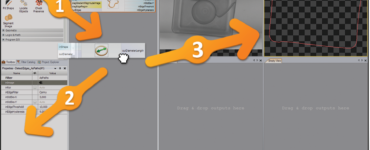Did you know that there are more than 3,300 businesses in the stock and commodity exchange industry in the United States alone? Almost 9,000 people work at these exchanges to help people with their investments. This market earns more than $19 billion in the United States alone every year!
Many people find quality stockbrokers to help them make savvy investment decisions. However, no matter how much you rely on the expertise of others, is worth understanding the differences between options vs. futures for yourself.
After all, if you are going to put your money on the line, it is vital that you understand your investment options. This can be difficult at first as many people mix up options and futures. However, despite their similarities, there are some key differences between these investment options worth learning about.
So what are options and futures, and what is the difference between them? Read on to learn all about the most crucial things to know about options and futures!
What Are Options?
As their name suggests, options are all about providing investors with optionality. When someone buys stock options, they purchase the right to buy or sell something at a specific price.
For example, if a security or commodity costs $100 per share today, you can buy the option to buy or sell it at today’s price in the future. If you think that a commodity might increase in price to $200 per share, then you might want to buy yourself the option of buying that commodity at the current price of $100 per share.
Then, if you are correct about the price of the commodity going up, you can sell it at the new high price after buying it at the lower price that you bought an option to buy it at.
However, when it comes to futures versus options, it is important to emphasize that you do not have to exercise this option. If the price of this commodity goes down instead, there is no requirement that you buy it at the price you have the option to buy it at.
What Are Futures?
In many ways, futures are similar to options. These derivatives give you the option to buy or sell a specific asset at a designated price in the future. However, the essential thing to understand about futures is that you have to make the purchase or sale you have agreed on.
Although options allow you to take or leave the options at your disposal, futures do not. In many ways, that makes futures a riskier investment.
On the other hand, if you are certain about the future price of a commodity, then it might make sense to stick your neck out and buy a future.
Tips for Trading Options
If you are trading options, it is important to do your due diligence. Some people rely on the relative safety of options to cut themselves some slack. They get the idea that a certain commodity will go up or down in price and buy an option that will allow them to profit from that theoretical movement.
However, if you do not have good reason to substantiate your hypothesis about the future movement of an asset, this can lead you to lose money on options over and over again.
It is also important to understand that options will reduce some of your profit even if you are right about the future movement of an asset. For example, if you do get the option to sell a commodity at $200 per share after buying it at $100 per share, you might think that your profit would be $100 per share.
However, after accounting for the cost of buying an option, your real profit might be closer to $90 per share. But what happens if the commodity increases in price, but only to $105 per share?
In this case, you will make an initial profit because you will be able to sell shares at a higher price. However, the cost of your option will then cause your net result to be unprofitable. Although options may not be as risky as futures, it is still vital that you do your homework before buying them.
Tips for Trading Futures
When it comes to trading futures, you want to be even more careful. For example, you might want to spend months or even a year making virtual trades with futures. Then, you can see for yourself if your decisions are profitable or not.
If they are not, then you can save yourself from the cost of spending real money on real future trading. Of course, even then, there might be a place for futures in your investment strategy.
However, you might need someone with more expertise in stock trading to help you make profitable decisions with futures. Consider working with full-service stockbrokers to help you come up with an investment strategy that will allow you to make use of this powerful tool without suffering due to excess risk.
Know the Most Vital Details About Options vs. Futures
Learning more about the nuances of options vs. futures is essential if you want to create the most powerful investment strategy you can. At the same time, you may want to rely on the expertise of people who have spent longer understanding the investment game. Sometimes, the best strategy for an individual is to work with expert stockbrokers who can give them quality advice.
To learn more about the latest information in investment, business, and more, take a look at our other articles!










